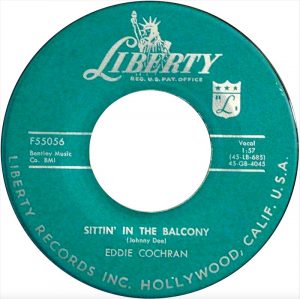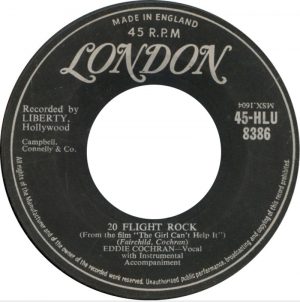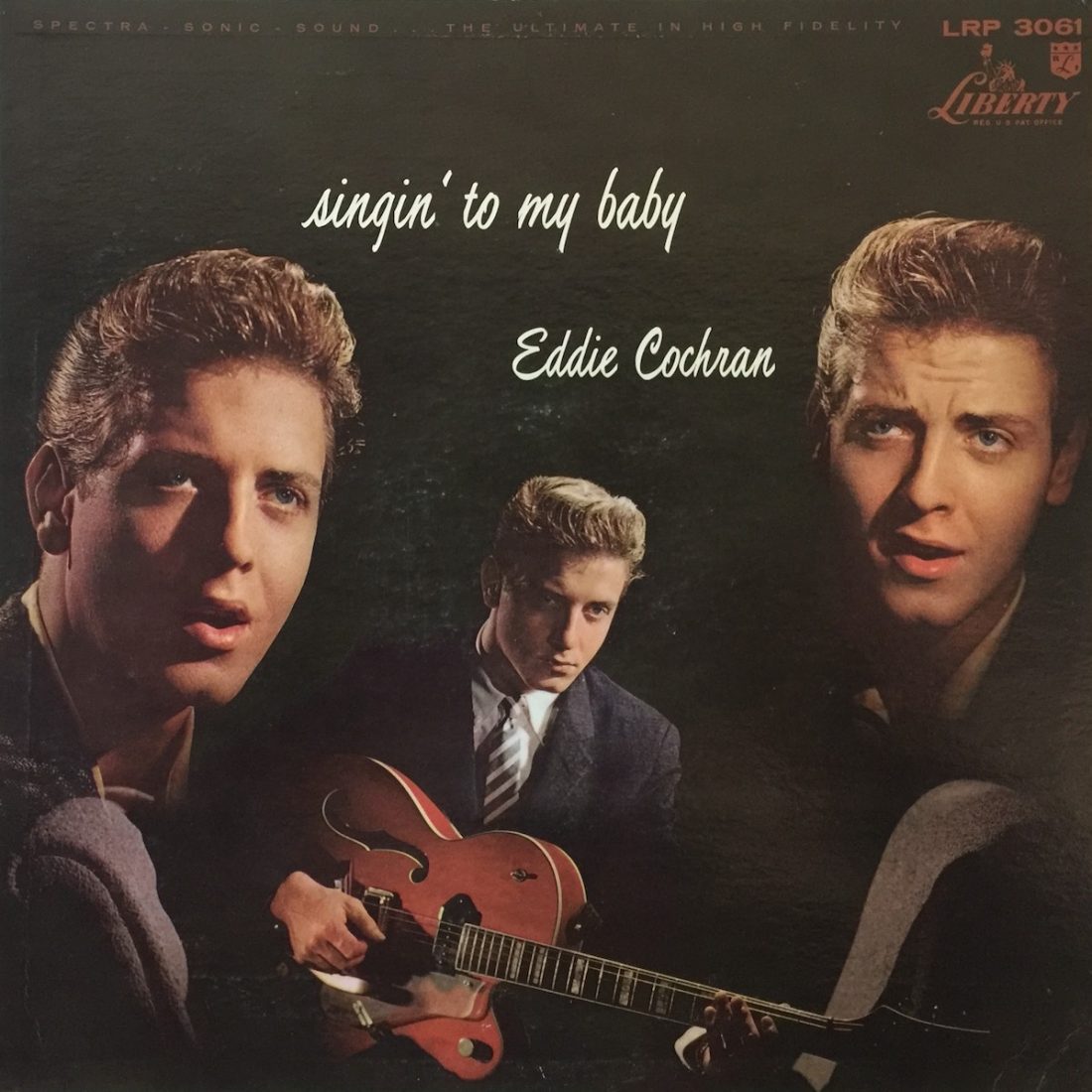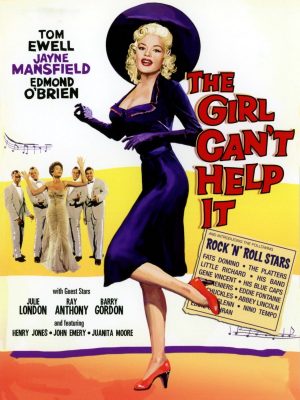Critics haven’t always been kind to Singin’ To My Baby but while the only album released in Eddie Cochran’s lifetime lacks the songs that established him as one of the greats, it’s still an underrated gem…
Words by Jack Watkins
In the early years after his death, Eddie Cochran fans got used to compilations of his best-known songs. Just five months after his fatal accident in the UK, The Eddie Cochran Memorial Album climbed to No.9 in the British LP charts.
Reissued three years later, there was still enough demand for it make No.11. It followed the success of another compilation album Cherished Memories, which had charted at No.15 that year. A different sort of product was Singin’ To My Baby, reissued several times in the 1960s, and briefly charting on a couple of occasions in this country.
First released in the States in 1957, and in the UK a few months later, Singin’ To My Baby had been the only album to have been released in Cochran’s lifetime. With its classy sleeve cover, the beautifully lit images included one of the artist holding his striking Gretsch 6120, and looking pensively into the middle distance.
Cherished Memories
While a lot of people have been a bit sniffy about the choice of songs on this record over the years, it deserves better, not least because, unlike so many albums by rock’n’rollers in that period, it was not some hastily slung together assemblage of a star’s big hits, but was genuinely conceived as a studio album, all the tracks laid down in sessions at Gold Star Studios in Hollywood between the early spring and summer of 1957.
It is also a fascinating timepiece, reflecting the confusion and dilemma that confronted many studio bosses and performers at the time as to how to present their recorded music to the public.
Cochran was only 18 when he recorded the songs for this album. As Rob Finnis wrote in his detailed essay to accompany Rockstar Records’ The Eddie Cochran Box Set, it was “probably as unrepresentative a set” as Gene Vincent’s first LP for Capitol Records, Bluejean Bop! which had been released the previous year.

Changing Musical Climate
Yet the tendency of many writers to disparage both of these albums because of the sedate nature of some of the content stems from a partial misreading of music history. A lot of rock-orientated journalists, contemptuous of the 1950s music scene, have painted the era as just a revved-up prelude to the real hard stuff that was to come from the mid-1960s.
But rock’n’roll did not arrive on the block fully-formed, and most of its early exponents grew up listening to pop and country crooners like Perry Como and Eddy Arnold and belters like Frankie Lane and Johnnie Ray, alongside more blues influenced country artists like Hank Williams and a string of R&B performers. They were, within reason, happy to incorporate a few standards in their recorded repertoire, and usually performed them brilliantly, as proven many times over by Elvis Presley and Vincent across their careers.
The ability to sing standards at that time was proof of your artistic integrity. Cochran, fractionally younger, was alive to the changing musical climate and was inspired by Presley, but as a consummate musician first and foremost, he would have been across all the styles, even if his instinct was always to add the inflections of rock’n’roll.
Twenty Flight Rock
All the same, you’d have to say the British got lucky with later versions of Singin’ To My Baby, licensed for release on the London Records label, because of the inclusion of three extra, high quality tracks which add a little extra zip. Most notably these included Twenty Flight Rock which, albeit with a different arrangement, had been the song Cochran performed in the Frank Tashlin-directed satire of the music business The Girl Can’t Help It.
Despite still being hitless at the time, with only one single as a solo artist, Skinny Jim, released on the Crest label, behind him, Cochran is introduced in the film as one of America’s “top rock’n’rollers,” and his slightly mannered performance made a big impression at the time.
The version of Twenty Flight Rock he performs in the picture was released as a single in this country to coincide with the film’s arrival in British cinemas, but the version on Singin’ To My Baby was a later cut. Many prefer the original with the rockabilly style click of Connie “Guybo” Smith’s slap bass more forward in the sound mix, whereas it is hardly noticeable in the second version. But whichever version you prefer, it’s still an exciting song, and the lyric about an amorous young guy with a girlfriend who inconveniently lives 20 floors up in an apartment block has helped make it become an accepted Cochran favourite.
Teen Lover
However, Twenty Flight Rock is not reflective of the overall sound which Liberty were clearly keen to use to present Cochran as at this time, more as a romantic teen lover than as a horny young dude. So the first pressing of the album in 1957 kicks off with Sittin’ In The Balcony. Instead of putting out Twenty Flight Rock to capitalise on the impact of Cochran’s film appearance, this was the song Liberty boss Si Waronker had chosen to release as his first single.
It was a cover of a song by a young singer Johnny Dee (better known to us as John D Loudermilk) which Waronker had tried to secure the distribution rights for. In failing to do so, he got Cochran to record a note for note remake, complete with metallic guitar break, and heavy use of echo, including for a big smoochy kiss at the end. They laboured long over getting the sound right, however, and were rewarded when it outsold the Dee original, reaching No.18 to give Cochran his first Top 20 hit early in 1957, though it didn’t enjoy the same success in Britain.
Kissin’ Cochran must have had some traction, because Singin’ To My Baby’s closer One Kiss, a Cochran-Jerry Capeheart collaboration, had been the follow-up single. It’s a none too subtle retreading of similar ground to Sittin’ In The Balcony, with some more twangy guitar on the bridge. The driving mid-paced rocker Mean When I’m Mad, recorded at the same session, was the flip on the poor selling single, and featured more good guitar work, and an aggressive Cochran vocal performance.

Completely Sweet
One of the most interesting tracks on the album was Completely Sweet. The instrumentation on the Singin’ To My Baby album was always sparse, led by Cochran on guitar. Long-time friend and musical associate “Guybo” Smith was at this stage still playing stand-up bass on Cochran’s recording sessions, rather than the electric bass he would switch to on later hits like Summertime Blues and C’mon Everybody.
The veteran sideman Perry Botkin Sr, who’d worked with everyone from Al Jolson, Bing Crosby and Bob Hope to Spike Jones, was on rhythm guitar, and on tracks without Jerry Capeheart’s box tapping contributions, there was an unspecified drummer. Then there were the Johnny Mann Singers, a vocal group who were at Liberty under a separate contract. Backing vocal groups have got a bad name over the years. Indiscriminately used on so many 50s’ and early 60s records to the point of cliché, they sweetened and softened the edges of many songs, but the Mann Singers were more skilfully deployed on Cochran’s recordings.
Completely Sweet, transformed from a more basic earlier Cochran effort at this song which he had penned with Capeheart, is a striking example of the value of the Mann Singers. The vocals add depth to a track that also features one of the mid-song rhythmic shifts Cochran often favoured, in this case from a rhumba rhythm to a shuffle and back again, before closing out with a guitar and slap bass coda, and Cochran dropping his voice into bass mode to sing, “She’s so completely sweet.”
Killer Guitar
Cradle Baby, written by a country singer Terry Fell whose real gift was for song-writing, followed the same stylistic model as Completely Sweet, with another short, sweet killer guitar break, great backing vocals and cleverly layered, syncopated rhythm. Stockings And Shoes was another good song, keeping up the energy levels with good call and response interplay between Cochran and the Mann Singers, but the same could not be said for the Cochran-Capeheart composition Undying Love, which was just plodding, while Tell Me Why, which had an embarrassing spoken passage, was even worse.
To be fair, while it is usually listed as having been penned by Cochran, he doesn’t bear the responsibility for this mournful dirge, which was actually a cover of an earlier song by ballad singer Betty Johnson, Please Tell Me Why, first released the previous year.
Proud Of You was a mildly swinging little ditty, with Cochran extolling the delights of his girl over a liberal dose of doo-wahs from the Johnny Mann Singers. One of the main curiosities of this song is that it was written by Dale Fitzsimmons, who’d previously joint-penned with Ray Stanley Latch On – one of the best songs Eddie and his unrelated namesake Hank Cochran recorded together during their formative earlier partnership as The Cochran Brothers. Lovin’ Time had Cochran strumming a ukulele, and qualifies as a pleasant enough filler.
An Underrated Gem
There were two traditional ballads on Singin’ To My Baby. There’s no doubt that Cochran generally struggled to sound convincing on outright slowies, I’m Alone Because I Love You being a case in point. Much better was Have I Told You Lately That I Love You, however, which Cochran would almost certainly have heard being sung by Presley on his recent RCA album Loving Time album.
This sentimental song, written by Mac Wiseman, has been performed by many country singers over the years, including Gene Autry and Jim Reeves, whose maturity made them better placed to deliver the lyric with conviction, yet Cochran digs deep to produce a solid new version. Incredibly, let’s not forget, he was still only a teenager, and Singin’ To My Baby remains a monument to a talent who, at 18, had already passed the precocious stage.
Buy our Eddie Cochran Collector’s Edition Special here
Read More: Eddie Cochran on the big screen






